
I started specialty training in 2010 after completing foundation training. I found the Public Health training scheme to be a real privilege. I was able to build knowledge and skills through a variety of diverse and interesting placements and projects.
In the first year I completed the MSc in Global Health Sciences at Oxford – this consolidated my interest in global public health policy and practice. For my dissertation placement, I spent time with the Instituto de Investigación Nutricional in Peru, on a research project about perceptions of childhood overweight and obesity.
Following this, I undertook placements in a range of settings, including the Thames Valley Public Health England Centre, NHS Oxfordshire, The UK Cochrane Centre, as Teaching Fellow at the Nuffield Department of Population Health, the Ethox Centre, Oxfordshire County Council, Oxford University Hospitals, the Department for International Development (DFID), and National Institute for Health and Care Excellence (NICE).
During my placement as a Health Adviser at DFID I worked in the Policy Division, on HIV and Sexual and Reproductive Health and Rights. I also travelled abroad to join the team in DFID Sierra Leone for 6 weeks, early in 2015, as a Health Adviser in the Ebola Crisis team.
For the final part of the training scheme, I was based at NICE, developing a strategic paper regarding UK support to health systems strengthening in low and middle income countries, and opportunities to work in partnership with the National Health Service and other UK health institutions.
Following training I am now based at the Nuffield Department of Population Health in Oxford. I am Deputy Director of Clinical Teaching part-time. The other part of my time I am pursing a DPhil with the Ethox Centre about ethical issues related to infectious disease data and sample sharing.
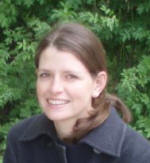
I developed an interest in public health during my foundation training when I realised that many of the root causes of ill-health could best be tackled at the population level. The MSc in Public Health at the London School of Hygiene and Tropical Medicine provided an inspiring introduction into the world of population medicine. As part of my Public Health Training Scheme at the Oxford School of Public Health I worked at a Primary Care Trust, the Health Protection Agency, Oxford University’s Department of Public Health and the Chinese University of Hong Kong. The University-based placements gave me experience of global health research and led to my decision to undertake a PhD at the Nuffield Department of Population Health. My research is on perinatal depression in refugee and migrant women on the Thai-Myanmar border.

I joined the Public Health training scheme in 2004 after qualifying in Medicine and having the seeds of public health work sown in me during a three year Masters in Community Medicine at St. Johns Medical College, Bangalore, India. The efforts of the Head of School, her team and the various trainers (i.e. jobbing consultants and directors) located around the Thames Valley region ensured that the public health seeds didn’t meet an untimely end and nurtured me towards a career in communicable disease control where I currently ply my trade.
Key attractions of training in public health in Oxford:
A year long MSc to help strengthen core knowledge (and meet like-minded individuals from different parts of the world with a variety of experiences) put me in a good position to get over the Faculty of Public Health membership exams.
The opportunities to work in a variety of NHS, academic and local government placements. Within Thames Valley you will get to work with different populations and deprivation groups while being close enough to London to explore training placements in the Department of Health or central agencies.
Close working with other specialty registrars during training days and the social events which don’t lag far behind. The importance of this is usually realised in the first few years as a ‘fresh’ consultant!

I started the Public Health Training Programme in August 2015, coming from a background in medicine and medical education. After completing my medical degree at the University of Cambridge, I went on to finish the Foundation Programme in the East of England. I then studied for my Masters in Public Health (MPH) at the University of Hong Kong as a Rotary Ambassadorial Scholar, earning a Distinction for the degree and the Professor Anthony Headley Scholarship for Master of Public Health. My MPH dissertation assessed the prevalence and healthcare usage of people with Trisomy 21 in Hong Kong. I returned to the UK to join the Paediatrics Training Programme in Health Education England Thames Valley. I then went on to obtain a Postgraduate Certificate in Medical Education from the University of Bedfordshire, whilst working as a Clinical Educator at the University of Buckingham Medical School, where I taught first year medical students. During my final placement at Milton Keynes Council, I worked on a health needs assessment of children with disability, a clinical audit of C.diff, and a wellbeing hub pilot, before my CCT in August 2019.
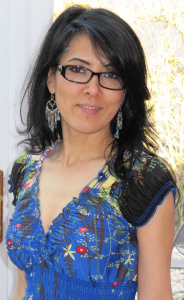
My story in Public Health comes in three parts: the seeking, the finding and the blossoming. Throughout it all I owe such a debt to many colleagues who have inspired me and helped me along the way.
Part 1: The Seeking;
Life is strange. Who knows what pattern the fates are weaving……
My life in public health began before I knew what it was. I was a young doctor displaced in war torn Afghanistan from my home in the capital Kabul to the Northern province of Mazar-E-Sharif. I worked for Oxfam and later UNICEF looking after refugee camps and trying to promote women’s health. This is where I was caught by the magical spell of Public Health – in the unlikely setting of latrines and the human rights of women. I had taken a sip from the cup of Public health and I wanted to drink deeply.
In 1996 I resigned from my posts in my home country and came on my own, living off savings and temporary jobs to London to try to find a way to study Public Health. Looking back, the lack of a plan was terrifying, but I heard the call and I followed it. As I could barely speak or write English my first step was to get these up to scratch and pass the exams to get me onto the London School of Hygiene and Tropical Medicine. Eventually I was accepted for the MSc Course “Public Health in Developing Countries”, funded by part time work in newsagents, hotel reception, translating business documents and even in Burger King.
The plan was to return home and get to work in Public Health in my country…… but home was now a full-scale war zone. I couldn’t get home, I was separated from my family and I was a refugee… so what next? How could I use my new-found skills?
My course supervisor at the LSHTM appointed me as an academic research assistant and suggested I should make a contact which was life changing….. I went to talk to Dr Premila Webster about the formal training scheme. Premila was an inspiration and, to cut a long story short, via a six month trainee locum post in Health Protection in Berkshire I was lucky enough to get onto the specialist Public Health Training Scheme for Thames Valley….
Part 2: The Finding:
Wow!! This was it!! Real Public health at last – I could not believe my luck and I was so grateful to be given this chance. I thank this great Country for taking me- a refugee- and giving me this chance. Sometimes I don’t think we realise how lucky we are to live here in the UK.
Now I had really ‘found myself’ and things went from strength to strength. Under Premila’s guidance I had a series of marvellous placement as a trainee:
- One year in Slough working with the disadvantaged in a Unitary Authority – this gave me a love of local Government and a one year placement soon became two years.
- Next, I went off to Oxfordshire County Council as the first public health trainee to be placed in Local Government – I was eager to know how two-tier Local Government worked and was soon hard at it, negotiating parts of their ‘Local Area Agreement’. I loved every minute.
- Pursuing the Local Government theme, I was next posted to the Government Office of the South East which was fascinating and then to the South East Public Health Observatory to strengthen my skills in epidemiology in larger populations.
- Next came the Department of Health. I was privileged to help negotiate the first ‘National Childhood Measurement Scheme’ and saw something of the ‘corridors of power’ in operation.
- Finally, I went to Oxford Primary Care Trust to do ‘pre-consultant’ work – figuring out how to make emergency planning work in the NHS as the NHS role was changing fast.
There it was! The whole marvellous and magical pattern of training, all done in just over 3 years thanks to retrospective recognition of my previous experience.
Overall I just could not believe that such a banquet of riches had been spread out before me…. and the best thing of all was that just as I thought it couldn’t get any better, the next course would be served, and it was more delicious than the last. For me, finding this training scheme and the Oxford School of Public Health was lifesaving.
Part 3: The Blossoming:
I loved every minute of my training and the tools I was given then have proved to be sharp and true for getting the day-job done. I think of the whole training period as being like growing flowers. First the seed of Public Health is planted. It grows and is watered by senior colleagues and the training scheme until the flower buds are ready to burst open. Then comes ‘real work’ and the flowers open fully.
Since then the river of life has kept flowing, taking me through jobs in Milton Keynes, Oxfordshire, Oxford University and into Buckinghamshire…… and who knows where it will lead… maybe it will take me back home one day ……. who knows? But what I do know is that it will be quite a ride on the river of life. Improving the public’s health is the star we steer by, and a training course like ours in Thames Valley is the boat we sail in in our early years. We never forget our debt of gratitude, and later, if we are lucky, we get to train others in our turn and give back a small measure of the riches we have been granted.
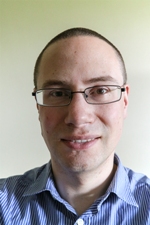
During my final year I worked with PHE’s Screening Division on a variety of interesting and rewarding projects. I helped plan and steer an evaluation of a new screening programme for the rare genetic condition Severe Combined ImmunoDeficiency (‘SCID’) which involved drawing together a variety of clinical and academic subject experts to deal with the complex issues faced when rolling out a new programme. I have also worked on engaging with Directors of Public Health with screening inequalities as part of the new Screening Inequalities strategy produced by PHE. Working with the ADPH and LGA to drive this work forward.
The placement also gave me the opportunity to spend some time with New Zealand’s Ministry of Health and their screening team, where I attended the Maori screening inequalities group, incident review panels and had the opportunity to present to New Zealand’s National Screening Advisory Committee on work underway in the UK.
Towards the end of my placement I moved into the screening quality assurance world where I arrived in time to contribute to the response to the recent national breast screening incident. I have now secured a role covering screening quality assurance for the London region. I am looking forward to the challenges ahead and am thoroughly enjoying working with a very capable and friendly team.

Coming directly from medical training, via a brief time as a systematic reviewer for the NICE National Clinical Guideline Centre, I joined the training programme at the Oxford School of Public Health in 2014. My first year was spent completing the Masters in Global Health Science, with my dissertation project focusing on international trade agreements on population health in Mexico.
I have since had opportunity to explore a variety of topics, working with teams across the breadth of public health functions; from local authority health improvement initiatives, to regional screening and immunisation commissioning, to outbreak response with the health protection team and most recently policy development within PHE’s national team and the Faculty of Public Health, the latter offering opportunity for me to revist the topic of trade and health.
Wherever I have been placed throughout my time on the training programme I have found innovative projects and inspiring public health leaders, all working towards the shared goals of improving health and wellbeing, and reducing inequalities. The only trouble now is deciding where to focus when I CCT in August 2019!
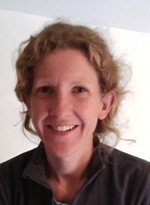
I started on the Public Health Training Programme in 2012, coming from a science background in surveillance and epidemiology and having worked for a number of years at the HPA (as it was then) in Colindale.
Having completed an MSc previously at the London School of Hygiene and Tropical Medicine, I started with a placement at Berkshire West PCT moving, when public health transferred to local authorities, across to the Berkshire Shared Team based in Bracknell Forest Council. Here much of my time was spent on a large piece of work looking at sexual health across the county. Following this, I completed a 3-month placement at Thames Valley Public Health England Health Protection Team, learning general health protection responses, gaining skills for being on-call and getting involved with management of outbreaks – for example investigating a Hepatitis A outbreak at a nursery.
My training was then temporarily on hold while I took maternity leave. On my return, I worked as part of the team at the Nuffield Department of Medicine, Centre for Tropical Medicine and Global Health setting up clinical trials for Ebola treatments. This was interesting and fast paced work, going from funding application, protocol, ethical and regulatory approvals, study set up and recruitment through to closure during my 9-month placement. I completed my training working in Buckinghamshire County Council looking at the early years needs and service provision and identifying how the health (in the widest sense) of 0-5 year olds could be improved across the county.

Putting public health into practice for nearly five years as a Specialty Registrar in Thames Valley has been the highlight of my career as a physician. I have had the opportunity to undertake a Master’s degree in Global Health Science; which provided the foundation for my public health practice. My training placements working within local government providing leadership on system change and experience of working on policy within central government (DFID) have proved valuable for my current role as an Assistant Director of Public Health within Camden and Islington.
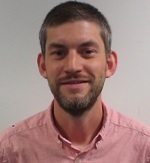
I completed the training scheme in August 2019 and am now the Consultant in Public Health at Reading Borough Council.
I am a nurse by background, and having worked in a variety of areas, my role prior to joining the training scheme was to programme manage the roll out of the NHS Bowel Cancer Screening Programme in Oxfordshire. Whilst working in this role I also undertook an MSc in Public Health at Oxford Brookes University.
Whilst on the training scheme I undertook a range of placements covering the different domains of public health, at both local and national levels. In my final year of training I worked as an Acting Consultant in two different Local Authorities which helped to prepare me for the substantive role I now do.
Reading is an interesting and vibrant place to practice public health with some quite stark health inequalities. In my post I am responsible for the full range of public health services that sit with Local Authorities. I also have a role in the newly formed Berkshire West Integrated Care Partnership and lead on suicide prevention across Berkshire as a whole. It is definitely a role that requires a broad set of skills and knowledge, much of which I have developed whilst in training. In time, I am keen to see Reading developed as a training location for Registrars because I think there are plenty of interesting and varied opportunities for learning here.
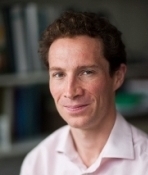
I am currently an NIHR Academic Clinical Lecturer (Public Health Medicine), MRC Epidemiology Unit, Cambridge.
During my specialty training in Oxford, I undertook attachments at Thames Valley HPU, NHS Berkshire West, the University of Oxford (British Heart Foundation Health Promotion Group), and the National Heart Forum.
My principal interests are policies and population-level initiatives to promote physical activity and better nutrition. In particular I have examined the role of fiscal incentives (taxes and subsidies) in promoting health and the role of environment (eg green space, workplace parking) in supporting physical activity. I studied medicine at Cambridge and Oxford Universities and trained in General Medicine working in the UK, New Zealand and Thailand. From 2008-2010 I worked as a clinical advisor to the Chief Medical Officer for England. I hold an MPH from Harvard School of Public
Health.
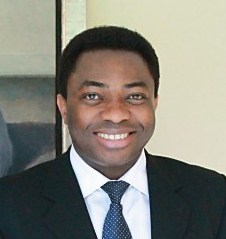
My training in public health at Oxford School of Public Health has had significant impact on my life and career. My journey into Public Health from a clinical infectious diseases background began with a light-bulb-in-the-head moment while working as a sole medical doctor in a very resource-poor community in Northern Nigeria. I saw first-hand the difference a population approach to health and health care could make and wanted to know all about it but I don’t think I had enough information to have consciously carved a path to Oxford. It was happenstance that, having just completed a high-intensity MSc in Tropical Medicine and International Health at LSHTM, I was bored out of my mind from a precipitous drop in adrenalin. Taking a walk down the street, I saw a newspaper where higher Public Health specialist training in Oxford was advertised. I thought, ‘why not’? On the memorable day I came to Oxford for the first time for my interview and walked into Old Road Campus, I knew I had made a momentous decision after interviewing successfully. I went on to meet fantastic trainers, teachers and peers over the 5 years of training. On completion of specialist training in November 2009, I took up a consultant post in Berkshire where I worked until March 2013. I now work as Service Director for Public Health in Bristol City Council.
What was it about training in Oxford School of Public Health and being part of its public health service and academic community that so strongly impacted me? I think it is many things but a few deserve specific mention. In my current role, I have a fantastic mix of strategic leadership and a lead on technical aspects of public health (e.g. information/intelligence, health protection, core offer work with CCGs). Working across the breadth of public health and with the complexity of challenges that come with the role requires a certain measure of self-belief. One thing I got in abundance in training was the opportunity to work with senior colleagues who helped instil this quality in me by achieving a perfect balance between independence and necessary guidance in the dispensation of training. This self-directed theme of learning was an evident leitmotif of the Oxford MSc in Global Health Sciences curriculum which combined a measured didactic component with strong independent learning. The quality of the education and training in Oxford was simply fascinating. I will not forget one of my first few weeks studying for the MSc when a dignified elderly gentleman walked into the classroom to teach us Biostatistics. That I left the session having learnt something despite being star-struck was a testimony to how good a teacher Professor Sir David Cox of the famed Cox proportional hazards model was. Such exposure to national and international leaders of thought and pioneers in the field of public health and its basic arts and sciences remains something I reminisce on with great pleasure. Our Tuesday evening masterclasses with public health experts, the diverse training opportunities available for trainees across service and academic public health, the wonderful flexibility of training that allowed a trainee to train to their strengths while identifying and developing their limitations all made training in Oxford School of Public Health an immensely rewarding experience.
What more can I say – it’s now over eight years since I joined the school, but I have maintained both personal and professional relationships with a host of people of the finest personal and professional qualities whom I met in Oxford while in training. In my short but eventful career in public health so far, I have my training in Oxford School of Public Health to thank for the experiences I had in it, the qualities it helped me develop and the competencies I acquired there while making the most of the simple things of life such as building lasting and positive relationships with people.

In many ways I have had a very conventional career path: a medical degree from Cambridge, training in psychiatry, and then the excellent public health training scheme in Oxford. My interest was always in academia and after completing my specialist registrar training, and a MSc and PhD from the London School of Hygiene and Tropical Medicine, I worked as a senior fellow in health technology assessment at Southampton University. After two years I moved to Warwick University, and after six more years I was promoted to Professor of Public Health. While at Warwick I retained a strong interest in NHS and health policy issues, and worked part-time as clinical director of the NHS website. In 2012 I decided to combine a part-time academic role at Oxford University, with a part-time Consultant Clinical Adviser role at NICE. My area of interest is digital health (sometimes called e-health), examining how to harness digital tools to improve health and health care. Having spent more than fifteen years ploughing a sometimes lonely furrow in this emerging area, it is pleasing to see it now becoming mainstream in both research and policy arenas. I also have a strong interest in television and film and have worked as a medical advisor on various programmes including Downton Abbey, Casualty, 1909, Spanish Flu: The Forgotten Fallen, An Inspector Calls, and SS-GB.
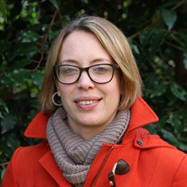
I am currently a Wellcome Trust Research Fellow based at the Ethox Centre and the Wellcome Centre for Ethics and Humanities in the Nuffield Department of Population Health, University of Oxford. I have a Wellcome Trust Society and Ethics research award for my work entitled Clinical Genomic Medicine and the Need for a Public Health Ethics Account. I studied medicine at the University of Bristol and went on to train in paediatrics and clinical genetics before undertaking a PhD (Identification and Characterisation of Genes which confer Susceptibility to Childhood Cancer, Institute of Cancer Research, University of London). During my PhD it became evident that genomic medicine was becoming increasingly population driven and I trained in public health medicine (2011-2018) to increase my understanding of healthcare systems and population health. My work at the Ethox Centre focuses on ethics questions related to public health and genomic medicine including themes such as resource allocation and priority setting, the role of commercialisation and the application of public health ethics in this setting.

I joined the training scheme in 2013 with limited experience of Public Health but was interested in healthcare public health, moving from managing individuals to influencing healthcare at the system level. Through the five years of training I was able to focus my placements and gain useful experience to work as a consultant.
I worked in a range of training locations, including local authorities, academic departments and acute trusts as well as completing the MSc in Global Health Science. I was involved in a number of interesting projects including two large scale NHS England initiatives looking to improving health outcomes for the whole population. Being involved in these initiatives helped to develop key skills for working as a consultant. After the end of my training I took up a role as a consultant in Public Health within a clinical commissioning group, leading on data intelligence and population health management.
The training scheme provided me with new perspective on health and satisfield my desire to influence the health and wellbeing of people on a larger scale. The scheme offered a wide range of opportunities to gain experience and pursue interests across all the disciplines of Public Health, supported along the way by excellent supervisors. My interest is in healthcare public health and there are countless opportunities to get stuck in to some exciting work that is happening in the area.
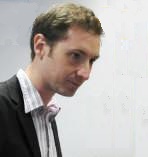
I am interested in the impact of health and care reforms on population health. I am an Associate Clinical Professor in Health Systems and Honorary Consultant in Public Health at Warwick Medical School, and a Senior Policy Fellow at the Health Foundation. I joined the training scheme in 2011 as an Academic Clinical Fellow (ACF) and had placements at the Thames Valley Health Protection Unit (now PHE SE), Oxfordshire PCT, Oxford University Hospitals NHS Foundation Trust, The Health Foundation, and Berkshire West Integrated Care Partnership. Work at OUHFT included helping to set up a new Trust public health function, called Here for Health. As an ACF, one of my main focuses was on modelling the possible effects on health of soft drink taxes and I have continued this work as part of the team evaluating the impact of the UK Soft Drink Industry Levy. After my ACF I did a DPhil here in Oxford exploring the cost-effectiveness of public health policies affecting diet and physical activity. This was followed by a year in the US as a Harkness Fellow in Health Care Policy and Practice where I was looking at how accountable care organisations work to address population health needs and improve preventative care services. For my final year of training I split my time between the Health Foundation where I worked on integrated care and population health, and Berkshire West Integrated Care Partnership helping to embed prevention priorities and population health management approaches. Finally, I tried to teach throughout training, including having a placement as a teaching fellow and through this, completing a Postgraduate Diploma in Learning and Teaching in Higher Education (PGDipLATHE).
